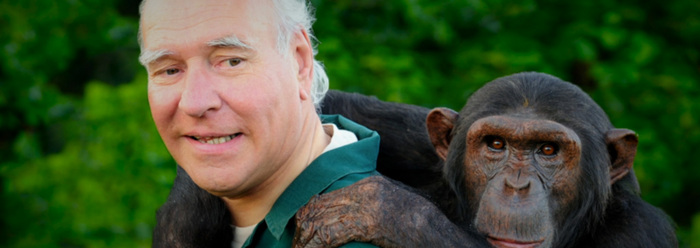Many find it incredulous that a well-organized movement exists which is currently demanding that chimpanzees, gorillas, and orangutans be included in a "community of equals" with humans. But, as this article is being prepared, just such a demand is being promoted within the United Nations and elsewhere.
Keep in mind that this bill addresses the granting of human rights to apes, not the guarantee of ethical treatment of animals by humans. On the surface, these "rights" sound high-minded, but look more closely.
Humans in free countries (the countries where the laws are targeted) have been afforded certain rights which seem to have no counterpart in the animal kingdom, such as the right to privacy, free press, religious freedom, free speech, good education, right to assemble, right to work, etc. Indeed, an overzealous court creates and enforces new rights all the time. How could these be applied, even in principle, to apes?
With rights comes responsibility. The denial of the right to life of another (i.e., murder) requires that the guilty party be held accountable. How will animals be held accountable for their actions? If a gorilla commits "murder" on a human or another ape (as is common in the wild) does he go to the electric chair? Few people would even be so foolish as to encourage unlimited freedom for apes, known for their strength and ferocity. If a loose chimp steals a picnic basket in the park, does he go to jail?
Obviously, evolutionary thinking undergirds such a perspective. True, the basic anatomy is rather similar (we are more like a chimp than a clam). So is the DNA with similar genes accomplishing similar functions. (We both digest food, grow hair, etc.) Apes are even known to have individual personalities (so do cats) and can be taught to perform certain tasks in response to command (as do trained dogs).
But claims of cognitive abilities and emotional response of apes are notoriously subjective. Trainers often develop deep bonds with their apes and overstate trivial responses. Never, even after years of training, has an ape ever done anything that a human toddler couldn't learn quite easily. There are vast differences.
The greatest gulf lies in the spiritual area. No ape has any awareness of right and wrong. They can be taught certain behaviors, but there is no moral comprehension in apes.
This difference is the essence of what it means to be created in the image of God. The Creator told us that the apes were created "after their kind," and humans were created "in His image." This fact does not condone cruelty to animals, and such is not implied here. Human kind was placed here as the Creator's steward over creation, to wisely care for it and the animals. But we are not simply the highest animal. We are the Creator's image.
Only an emphatic denial of the creation worldview and one's own accountability to his Creator would lead to such an escape from reason.
*Dr. John Morris is President of ICR.






.jpg)
